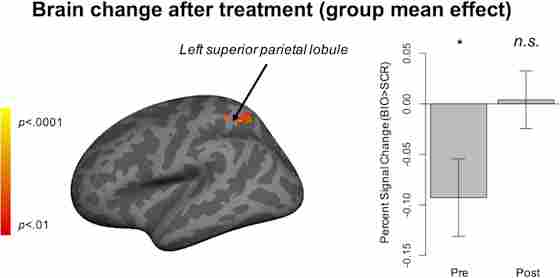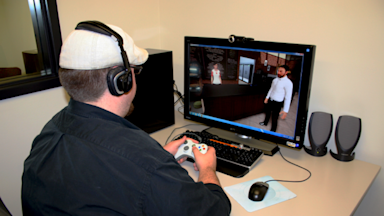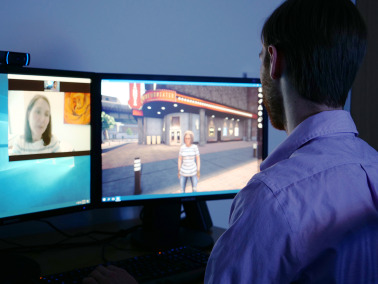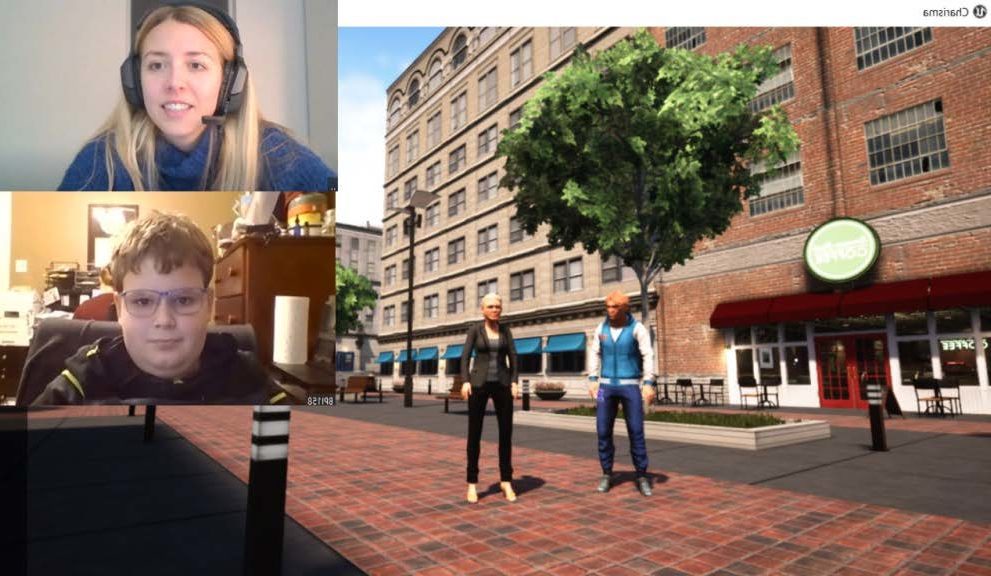Overview
This study addresses how behavioral changes after treatment for ASD reflect underlying brain changes. Measuring treatment efficacy in individuals with Autism Spectrum Disorder (ASD) relies primarily on behaviors, with limited evidence as to the neural mechanisms underlying these behavioral gains. This pilot study addresses this void by investigating neural and behavioral changes in a Phase I trial in young adults with high-functioning ASD who received an evidence-based behavioral intervention, Virtual Reality-Social Cognition Training, over five weeks for a total of 10 hours. Before and after receiving VR-SCT, young adults with high-functioning ASD passively viewed biological motion stimuli in a MRI scanner, tapping changes in the social brain network. The results reveal neuroplasticity in this age population, extending the window of opportunity for interventions to impact social competency in adults with ASD.
Figure 2. The group-level brain activation change before and after virtual reality-social cognition training. The brain map on the left illustrates the region of significant change, which is in the left superior parietal lobule. The bar graph on the right illustrates the activation in terms of percent signal change in response to BIO > SCR at pretreatment and posttreatment time points, respectively. Error bars represent ±1 standard error. The analysis was corrected, with voxel-level threshold Z > 2.33, P < 0.01, and cluster-level threshold P < 0.05. Site, IQ, age, sex, and pretreatment autism symptoms severity were included as covariates of no interest. *P < 0.05.


